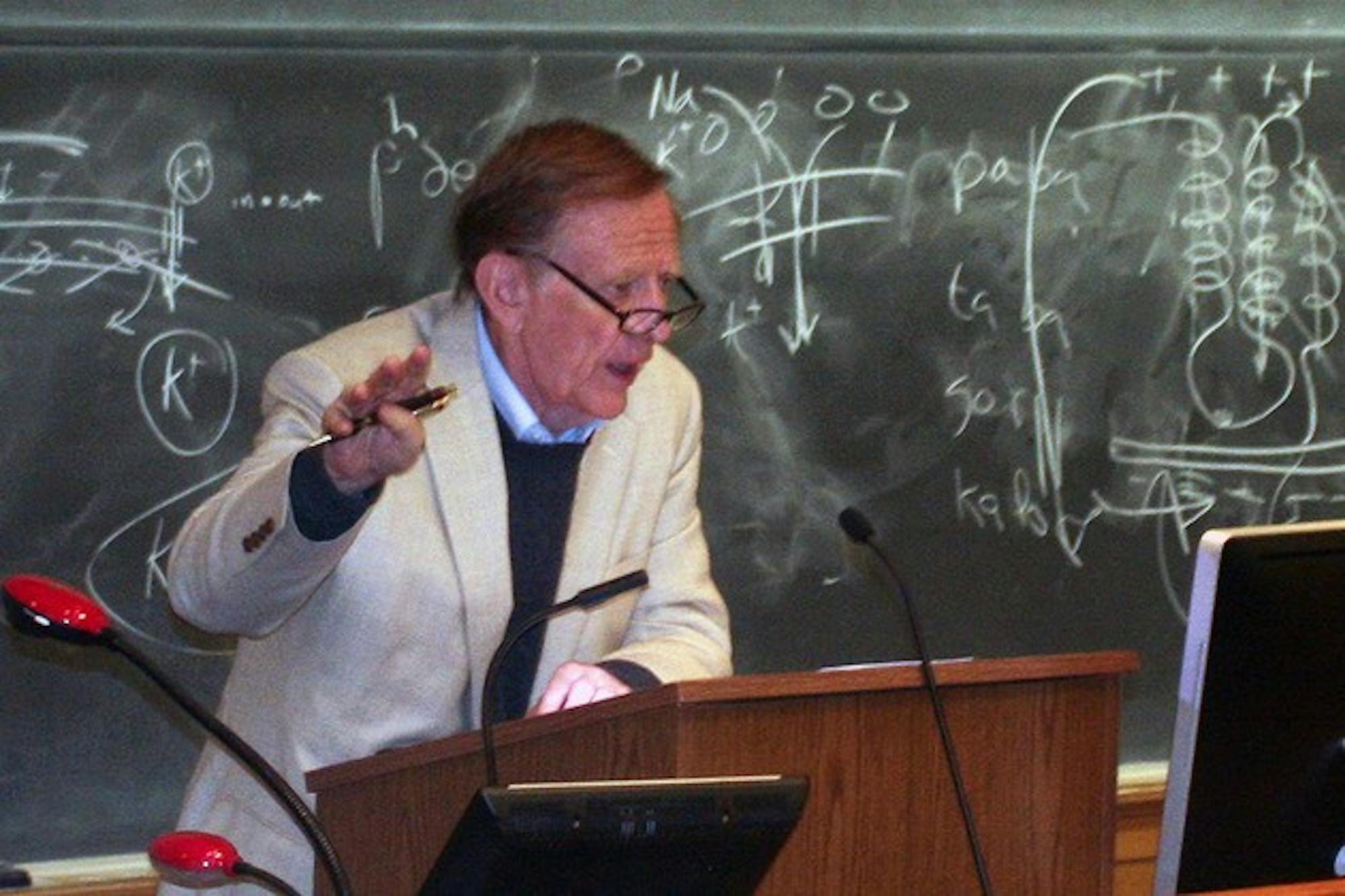Bushman, who is himself a Mormon, said that many people in the United States will not vote for a Mormon candidate based solely on their perception of the religion's ideals, but these include concern for the needy, cooperation and loyalty, which are beneficial qualities for a president, he said.
After defining Mormonism and discussing its history, Bushman considered the question of why some Americans would not trust a Mormon to be president of the United States. According to Bushman, 20 to 30 percent of Americans would not vote for a Mormon presidential candidate. Many Americans are under the impression that Mormons are a part of a "cult," which Bushman said was a idea perpetuated by other churches.
"Evangelical leaders did their best to advertise Mormonism as a cult, quite dangerous," Bushman said.
Many Americans would also not support a Mormon candidate because of fears that the Mormon Church hierarchy would play a role in that candidate's policy decisions as president, Bushman said. The Mormon Church, however, has a policy that the church is not allowed to exercise any influence over political figures, he said. He explained that this policy was instated due to the Senate's refusal to seat Reed Smoot, the first elected Mormon congressman in 1902, because of his religion. Since then, the church has made an effort to separate itself from politics.
"Church hierarchy has been thought of as a dominating force when considering Mormonism, which is one of the perceived dangers of having a Mormon president," Bushman said.
Bushman addressed how Mormonism would potentially impact Romney's presidential policies if he were elected. Mormonism ingrains values that Bushman described as essential to any presidency and would help Romney reach across the aisle in today's highly partisan Congress to potentially speed up the legislative process.
Bushman said that Romney's policies indicate that he does not hold "stereotypical Mormon values," but he retains the values necessary to a successful presidency.
"[Romney] just wants to solve problems." Bushman said.
Kate Bradshaw '14, who attended the lecture, said she liked that Bushman characterized Romney's religious views in a positive way.
"I liked the idea that Mormonism would affect him too little, and that's the concern," Bradshaw said. "Mormonism focuses on cooperation, and people haven't seen a ton of that from him."
Bruce Johnson '61 Th '62 said he was still unsure about his feelings toward Mormonism as it related to the presidency.
"The lecture answered some questions, and it raised some others," Johnson said. "It didn't satisfy all my bad feelings on Mormonism."
He said that he enjoyed the lecture, however, particularly because of Bushman's oratorical skills.
Bushman studied history at Harvard University as an undergraduate and a graduate student. As a member of the Mormon Church, Bushman taught courses at the Claremont School of Religion on Mormonism and its social context. Bushman has also written several books on Mormonism, including "Joseph Smith and the Beginnings of Mormonism" and "Character and the Social Order in Connecticut (1690-1765)."
The lecture, titled "Mormonism and American Politics," was a part of the Institute for Lifelong Education at Dartmouth speaker series.




